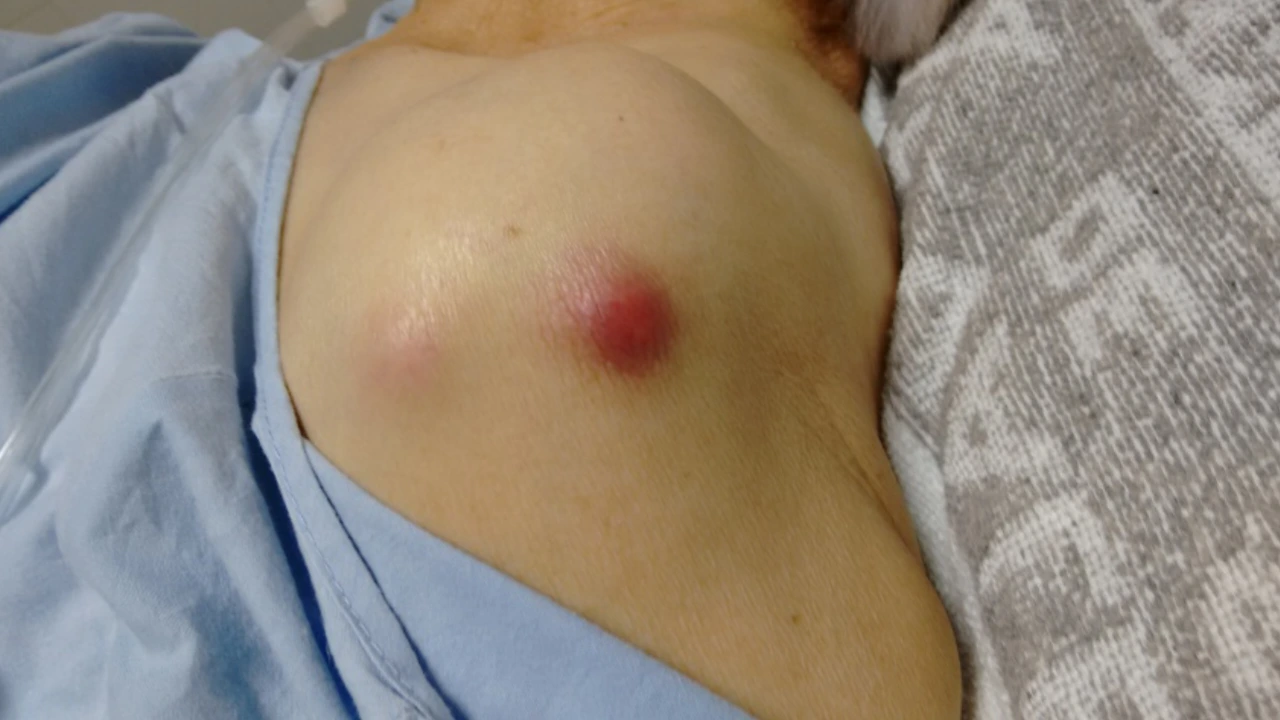Abscess Treatment
Understanding Abscess Reason Symptom Diagnosis Treatment Complications PreventionAbscess Treatmentfacebook twitter share to email line chat whatsappFor small skin and mouth abscesses, patients can treat them independently with warm water compresses. The method is to place a warm compress on the abscess for 15–20 minutes. Do this four times a day until the abscess shrinks and dries.
If the abscess does not shrink, the doctor will perform a pus removal operation . Before removing the pus, the doctor will give a local anesthetic, such as topical lidocaine . After that, the doctor will make a small incision to remove the pus, then cover it with a bandage.
Your doctor may also prescribe antibiotics, such as chloramphenicol , to treat the infection.
To help the post-operative recovery process, patients must maintain the cleanliness of the surgical wound by cleaning the wound and changing the bandage according to the doctor’s instructions. The pain from the incision will subside in a few days and the abscess can heal completely within 2 weeks.
In very large abscesses or those in internal organs, patients will be advised to undergo hospitalization. Treatment that will be carried out by the doctor can be in the form of pus removal surgery preceded by general anesthesia.
After surgery, the doctor will give antibiotics in injectable form to kill the infection and prevent it from spreading to other organs.
Complications of Abscess
In certain cases, untreated abscesses can cause serious complications such as:
- The abscess ruptures, causing infection in the surrounding area.
- swollen lymph nodes
- Endocarditis
- Sepsis
- Osteomyelitis
- Abscess recurrence
- Damage to the organ affected by the abscess
Abscess Prevention
Abscesses cannot always be prevented. However, there are several ways that can be done to reduce the risk of getting an infection from the bacteria that causes abscesses, namely:
- Eat a balanced nutritious diet , and increase your intake of fruits and vegetables.
- Maintain healthy skin by bathing regularly, changing clothes, and washing hands regularly using soap and running water.
- Treat wounds or scratches by washing the wound, applying antiseptic medication , such as chlorhexidine or cetrimide , and covering it with sterile gauze.
- Quit smoking
- Do not share personal items , such as towels, clothes, and razors, with others.
- Brush your teeth regularly and have them checked by a dentist every 6 months.
- Implement a healthy lifestyle to avoid diabetes
- Having healthy sexual relations to prevent HIV/AIDS
Refences :
KidsHealth (2017). For Teens. Abscess.Healthline (2022). What Causes a Skin Abscess?WebMD (2021). What is an Abscessed Tooth? National Health Service UK (2019). Health A to Z. Abscess.MSD Manual (2021). Abdominal Abscesses.WebMD (2021). What is an Abscessed Tooth?WebMD (2021). Abscess.WebMD (2020). What is a Blood Culture Test?

